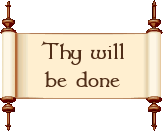|
The Cross-Contrary to Nature
By Steve Bray
It scarcely dawns upon us, even as God’s children, that God’s plan is to “cross” out the old race of Adam entirely. He says: “Behold, I make all things new.” And in the infinite wisdom and power of God, He chose the Cross as the means for contradicting and doing away with the fallen race of Adam—“that no flesh should glory in his presence.” (1 Cor. 1:29) The Cross contradicts our wills: Christ said, “Not My will, but Yours be done.” The Cross contradicts wisdom: For the message of the cross is foolish to “the wise and learned.” The Cross contradicts our affections: “Those who are Christ’s have crucified the flesh with its passions and desires.” The Cross contradicts our pride: Those who have the mind of Christ are willing to be humbled and be of “no reputation.” The Cross contradicts self: “One died for all, therefore all died; and He died for all, that those who live should no longer live for themselves.” The Cross contradicts human nature at every point. It leaves no room for the old man to escape. The unalterable terms of discipleship are plain and simple: “And whoever does not bear his cross and come after Me cannot be My disciple… So likewise, whoever of you does not forsake all that he has {from the self-life} cannot be My disciple.” (Luke 14:26-27, 33) To become a follower of Christ and to receive divine life from above, will entail dying to the old self-originated and self-directed form of life. It is God’s master-stroke to undo and drain away our natural life, so His divine life may take its place. “Whoever loses his life for My sake will find it.” Christ came not to straighten us out, but to “cross” us out; not to trim us back, but to cut us off. Christ did not do anything out from Himself. He did everything through the Spirit. His instruction to follow Him in His way of the cross can be nothing short of a termination of the old self-originated form of life. We need to again observe that self-denial is no mere cutting off of an indulgence here and there, but, as A. T. Pierson said, it is “laying the axe at the root of the tree of self, of which all indulgences are only greater or smaller branches. Self-righteousness and self-trust, self-seeking and self-pleasing, self-will, self-defense, self-glory—these are a few of the myriad branches of that deeply rooted tree. And what if one or more of these be cut off, if such lopping off of some few branches only throws back into others the self-life to develop more vigorously in them?” Until the axe, then, is laid to the root of the tree of self, and the old self-originated form of life gives place to the life of the Spirit, all our “virtues are only taught practices grafted upon a corrupt bottom.” F. J. Huegel says, “We are so addicted to self, so wrapped up in self, so entwined with self, so infatuated with self, that our spiritual natures cannot be centered on God by means of a deep union of love without a violent contradiction of our old natures. This is the secret of the Cross. It does violence to corrupt human nature. It slays the old life.” But, thanks be to God, this coming to the end of self is no lifelong funeral procession. Nay, verily, “For if we have been united together in the likeness of His death, certainly we also shall be in the likeness of His resurrection.” (Rom. 6:5) Thank God there is a divine life in Christ that is able to set us free indeed: “For the law of the Spirit of life in Christ Jesus has made me free from the law of sin and death. For what the law could not do in that it was weak through the flesh, God did by sending His own Son…that the righteous requirement of the law might be fulfilled {fully met} in us who do not walk according to the flesh but according to the Spirit.” (Rom. 8:2-4) |

